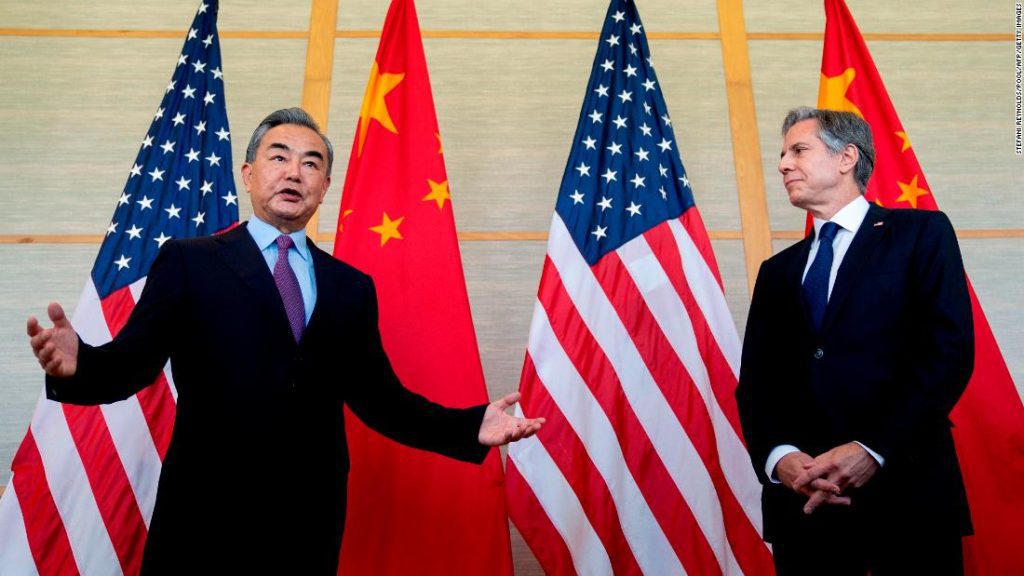
Describing their first in-person talks since October as “frank,” the two diplomats called the meeting a day after they attended a meeting of G20 foreign ministers on the Indonesian island of Bali.
Following the meeting, a US official said, “Neither side has backed down.”
“We were very open about where our differences were…but the meeting was also constructive because although candid, the tone was very professional,” the official said.
Blinken said Chinese leader Xi Jinping made it clear in a phone call with President Vladimir Putin on June 13 that he sticks to the decision to form a partnership with Russia.
Shortly before Russia’s invasion of Ukraine on February 24, Beijing and Moscow announced a “borderless” partnership, although US officials say they have not seen China evade tough US-led sanctions on Russia or provide it with military equipment.
US officials have warned of the consequences, including sanctions, if China provides material support for the war, which Moscow calls a “special military operation” to weaken the Ukrainian military. Kyiv and its Western allies say the invasion was an unjustified land grab.
Asked about his refusal to hold talks with Russian Foreign Minister Sergei Lavrov at the G-20, Blinkin said: “The problem is: We don’t see any indications whatsoever that Russia, at this moment, is ready to engage in meaningful diplomacy.”
Wang had an in-depth exchange of views on the “Ukrainian issue” during Saturday’s talks, according to a statement issued by his ministry, without elaborating.
He also told Blinken that the direction of US-China relations is at risk of being further “strayed” due to a problem with the US’s perception of China.
“Many people believe that the United States is experiencing an increasingly serious bout of ‘sinophobia’,” Wang was quoted as saying.
Tariff question
Wang also said that Washington should cancel the additional tariffs on China as soon as possible, and stop unilateral sanctions against Chinese companies.
US officials said before the talks that the meeting was aimed at keeping the difficult US-China relationship stable and preventing it from inadvertently turning into conflict.
In late June, US National Security Adviser Jake Sullivan said US President Joe Biden and China’s Xi were expected to speak again in the next few weeks.
Daniel Russell, a senior US East Asia diplomat under former President Barack Obama who has close contact with Biden administration officials, said before the talks that the main objective of the meeting would be to explore the possibility of a personal meeting between Biden and . Shi, the first to them as leaders.
The United States describes China as its main strategic rival and worries that it may one day try to gain control of the self-governing, democratic island of Taiwan.
Despite their rivalry, the world’s two largest economies remain major trading partners, and Biden is considering eliminating tariffs on a range of Chinese goods to curb rising US inflation ahead of November’s midterm elections.




More Stories
Journalists convicted in Hong Kong sedition case
Stand News: Hong Kong journalists convicted of sedition in case critics say highlights erosion of press freedom
Shark decapitates teen off Jamaica coast